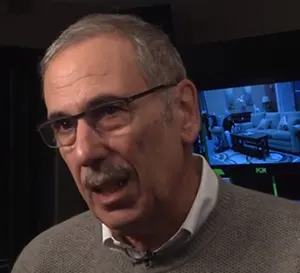Published on: April 3, 2025
By Daniel Butcher
Employees evaluating managers’ performance, not just vice versa, also can benefit organizations.
That’s according to Academy of Management Scholar Herman Aguinis of at the George Washington University School of Business and author of Performance Management for Dummies, who cited Dell Inc., where everyone—from entry-level employees to the top management team—completes an annual employee engagement survey called “Tell Dell” with questions about performance and diversity, equity, and inclusion (DEI). Dell leaders use the survey data to hold personnel—including leaders—accountable.
“Before they get promoted upward, every Dell manager needs to have really good ratings from their subordinates or direct reports, so it’s not just the supervisor evaluating the performance of their employees, but also the employees evaluating the performance of leadership and their supervisors—it goes both ways, upward and downward,” Aguinis said.
An even more extreme experiment in a new way to do performance management is “radical transparency,” which Ray Dalio, founder of hedge fund giant Bridgewater Associates, initiated more than three decades ago. He’d been looking for ways to improve the company’s performance and establish a culture of openness and independent thought. The organization has encouraged employees to review their direct manager or supervisor and even senior executives honestly, even harshly—real-time performance evaluations often deliver “radical truth.”
While Dalio found success with this approach, it’s not for everyone, as it can ruffle feathers and make people uncomfortable. Radical transparency means that leaders—and everyone else at the company—open themselves up to oversight and critiques. They must have thick skin and open minds to listen with humility to the feedback that lower-ranking employees give them and respond to it in ways that are productive, without getting defensive or seeking retribution. They also have to deliver brutally honest feedback to their direct reports in ways that improve their performance and morale rather than discouraging them.
-
Daniel Butcher is a writer and the Managing Editor of AOM Today at the Academy of Management (AOM). Previously, he was a writer and the Finance Editor for Strategic Finance magazine and Management Accounting Quarterly, a scholarly journal, at the Institute of Management Accountants (IMA). Prior to that, he worked as a writer/editor at The Financial Times, including daily FT sister publications Ignites and FundFire, as well as Crain Communications’s InvestmentNews and Crain’s Wealth, eFinancialCareers, and Arizent’s Financial Planning, Re:Invent|Wealth, On Wall Street, Bank Investment Consultant, and Money Management Executive. He earned his bachelor’s degree from the University of Colorado Boulder and his master’s degree from New York University. You can reach him at dbutcher@aom.org or via LinkedIn.
View all posts
Up next....
Everyone Will Suffer in the Wake of Trump Administration’s Research Cuts
Source: Shutterstock
By Paul Friedman
This year, the Trump administration has fired many government researchers, canceled scientific and medical research grants, and targeted leading universities, including Harvard, with debilitating funding freezes. Fear of reprisal has caused many scientists, doctors, professors, and university administrators to opt for silence instead of speaking up to defend the research that is getting the ax.
Academy of Management (AOM) Scholar Peter Bamberger of Tel Aviv University says much of the research produced by him and his colleagues, including many AOM members, has a day-to-day impact on industry practitioners, including organizational leaders and managers. Cuts in federal funding for research will have a negative impact on industry, as well as researchers, colleges and universities, and other research institutions.
“What we publish in our primary journals have to be both theoretically important and have practical relevance,” Bamberger said. “It’s got to be interesting from a theoretical perspective and intellectual perspective, and it’s got to have some sort of surprising element—going against conventional wisdom—but it also has to translate that surprising finding into something that managers can do something about.
“And there are thousands of organizational consultants who read the findings published in our journals and then translate that into actual practice in organizations,” he said.
Bamberger points out that a great deal of research is specifically aimed at examining current practices by managers and their efficacy. Recently, he published a study of the managerial approach called design thinking, which focuses on understanding clients’ needs and designing innovative solutions.
“Design thinking has been around for about 10 years,” Bamberger said. “It’s an approach to create more innovative ways of boosting learning and finding innovative solutions to common problems or sometimes even really wicked problems.
“It became a fad and a lot of organizations adopted it, but no one ever bothered to actually assess whether or not it has an impact and whether this impact is any greater than other types of learning-oriented interventions, like team building,” he said.
Bamberger and research colleagues designed a field experiment to test the impact of design thinking as a team learning intervention. They compared over time what happens in terms of the efficiency and productivity of teams using different interventions.
“Is design thinking more efficacious than an alternative?” Bamberger said. “And we found out that in fact it is, and we actually demonstrate the mechanism by which it operates and why it’s more effective than other mechanisms.
“So these types of practical implications are useful to managers and to the extent that we don’t have funding necessary to do this type of research, everybody suffers,” he said.
-
Paul Friedman is a journalist who worked for 45 years at the three major news networks. He began as a writer and reporter and then became a producer of major news broadcasts, including Nightly News and the Today show at NBC, and World News Tonight with Peter Jennings at ABC. He also served as Executive VicePresident of News at ABC and CBS. Later, he taught journalism as a professor at Columbia University, New York University, and Quinnipiac University. Friedman is now semi-retired and lives with his wife in Florida.
View all posts
Up next....
Trump Administration Policies Have Chilling Effects on Academia
Harvard Yard in the winter. Source: Shutterstock
By Paul Friedman
Tighter enforcement of immigration regulations and cuts in research grants under the Trump administration are having negative impacts on academic work in general and on not-for-profit professional associations, including the Academy of Management, in particular.
Academy of Management (AOM) Scholar Peter Bamberger of Tel Aviv University, the president of AOM, says you can see it clearly in the run-up to the AOM’s annual meeting in Copenhagen. Among other issues, there is concern about how the visas of foreign students are being treated by authorities such as U.S. Immigration and Customs Enforcement (ICE).
“A good number of the research papers that have been accepted for presentation come from doctoral students from the United States; many of the doctoral students in the United States are foreign doctoral students; and some of the foreign doctoral students in management in the U.S. are considering the potential costs of leaving the U.S. to present their paper,” Bamberger said.
“We are concerned that some of these foreign Ph.D. students, rather than taking that risk, may opt to stay at their offices in the USA and not present their research, which would obviously be deleterious to our science,” he said.
“It would be very unfortunate if innovative papers and important findings are not presented at the 2025 conference because foreign U.S.-based scholars are concerned about the validity of their visas.”
Bamberger said he doesn’t know any AOM members whose students have been deported, but he does know that some AOM scholars are among those being hit by cuts in federal funding for research.
“Those individuals who had grant money to study diversity, equity, and inclusion—that’s all gone,” Bamberger said. “Those individuals don’t have the grants anymore and as a result, the research stops.
“Now, it’s the right of a government to determine how it wants to allocate funding for research, so I can’t necessarily say that this is something that’s undemocratic or unfair,” he said. “That was the result of the election, but it is having a problematic effect.”
Bamberger said he sees an ironic example of how cuts in research can have unexpected results.
“A lot of that research on DEI is not necessarily pro-DEI,” he said. “For example, my own research on gender and racial pay equity suggests that contemporary policies oriented towards enhancing the equity have significant unintended negative consequences, including compensation compression.
“So when you cut off the funding for all research that mentions certain keywords assumed to be related to DEI, you’re cutting off the funding of people doing research that indicates problems with DEI policy, as well as perhaps supporting policies that may be favored by certain politicians.”
-
Paul Friedman is a journalist who worked for 45 years at the three major news networks. He began as a writer and reporter and then became a producer of major news broadcasts, including Nightly News and the Today show at NBC, and World News Tonight with Peter Jennings at ABC. He also served as Executive VicePresident of News at ABC and CBS. Later, he taught journalism as a professor at Columbia University, New York University, and Quinnipiac University. Friedman is now semi-retired and lives with his wife in Florida.
View all posts
Up next....
AI Is a Tool to Boost Efficiency, Not to Reduce Headcount
Source: Shutterstock
By Paul Friedman
Artificial intelligence is often seen as a threat to employment, but it can be used to preserve jobs in times of uncertainty such as the current one when many economists are sounding the alarm about a looming recession.
Academy of Management Scholar Peter Bamberger of Tel Aviv University said AI can be used to help businesses maintain skilled workforces when they may have to find ways to cut costs.
“What kind of jobs may disappear? What kinds of skills will you still need? What skills can we do without? There’s uncertainty there,” Bamberger said. “Perhaps you want to take that workforce and upgrade them over time.
“You have to know where your business is going and have a good sense as to what kinds of competencies you need,” he said. “There are clearly benefits to retaining your workforce as long as you can afford to train them to augment the AI and enhance its value.
“Increasingly organizations are doing this and using AI in this process.”
Bamberger said AI is now allowing organizations to better understand how to leverage and develop the talent in their workforce.
“Often we refer to something called the talent marketplace, something that organizations probably should have been doing decades ago, which is keeping inventories of their workforce’s competencies and skills,” Bamberger said. “AI is enhancing the ability of organizations to leverage the workforce they have in place by moving people around on short-term internal gigs in organizations and getting them prepared for positions that might open up in the future.
“These are systems that help organizations enhance the competency level of their workforce and limit the need to necessarily turn to the external labor market to secure the talent they need, which can be quite expensive,” he said.
“Ultimately it may offer a far more economical way to maximize the return from investments in human capital.”
There’s also a benefit of AI to employees, according to Bamberger.
“AI—having an understanding of the individual’s background and experiences and skills and competencies—can search through a wide range of projects that may require a month or two of work and then propose those to an employee during that individual’s slack time that they take on this additional project,” he said.
“And if they do enough of these projects over the course of two or three years, they’re going to be set to fill these new roles that they’re interested in doing and the organization needs them to fill.”
-
Paul Friedman is a journalist who worked for 45 years at the three major news networks. He began as a writer and reporter and then became a producer of major news broadcasts, including Nightly News and the Today show at NBC, and World News Tonight with Peter Jennings at ABC. He also served as Executive VicePresident of News at ABC and CBS. Later, he taught journalism as a professor at Columbia University, New York University, and Quinnipiac University. Friedman is now semi-retired and lives with his wife in Florida.
View all posts
Up next....
How Looming Stagflation May Affect Pay
Source: Shutterstock
By Paul Friedman
At a time when some forecasts predict continuing or worsening inflation or stagflation and possibly a recession, pay transparency adds to the pressure on organizations’ decision-makers.
Peter Bamberger of Tel Aviv University, an Academy of Management scholar who published a book based on his research on pay transparency, said managers will need to build systems of compensation that are more justifiable and understandable to employees.
“The first step with pay transparency is not necessarily to disclose pay levels of one employee or another employee, but rather to disclose how pay is determined in the organization,” Bamberger said. “Most employees have no understanding whatsoever how their pay is determined in the organization and how other people’s pay is determined in the organization.
“Simply understanding pay processes and procedures, all the evidence suggests, has beneficial effects for both employees and employers with very few, if any, side effects—except that employers have to work harder to build these equitable and fair systems.”
Bamberger said pay transparency is always problematic for decision-makers.
“No one wants their decisions to be transparent to other people—transparency is great when we are the observers, but when we’re the observed, it’s a terrible thing,” Bamberger said. “It comes with potentially unintended negative consequences, especially when you have to think about what happens when people see that they are paid less than other people.
“It becomes problematic for the ones making the decisions, and it can be problematic for the organization,” he said. “So there are complications with pay transparency; there’s no question about it.”
Still, Bamberger said he believes that “sunshine is the best antiseptic,” and pay transparency can produce surprising positive results.
“What the evidence shows is that most employees underestimate how much their superiors are making, and when you think about that, it generates a tendency of individuals to think that they’ll do better by leaving their current organization,”
Bamberger said. “The grass is always greener; if I want a pay increase, I have to go outside, and that movement has costs to the current employer.
“So there’s merit, potentially, in letting people see what the potential income might be for moving up within the organization,” he said.
“I think organizations that are forced to be more accountable and hence build more effective pay systems—more explainable and justifiable pay systems—ultimately enhance the quality of the human capital they can bring in and hold to enhance their competitiveness, which becomes really important in a period of stagflation.”
-
Paul Friedman is a journalist who worked for 45 years at the three major news networks. He began as a writer and reporter and then became a producer of major news broadcasts, including Nightly News and the Today show at NBC, and World News Tonight with Peter Jennings at ABC. He also served as Executive VicePresident of News at ABC and CBS. Later, he taught journalism as a professor at Columbia University, New York University, and Quinnipiac University. Friedman is now semi-retired and lives with his wife in Florida.
View all posts
Up next....
Why We Love Time-Travel Tales
Source: Shutterstock
By Daniel Butcher
People love stories that involve time travel, from books such as The Time Machine by H.G. Wells, A Wrinkle in Time by Madeleine L’Engle, and the Outlander series by Diana Gabaldon (adapted into a TV series) and shows such as Doctor Who and Quantum Leap to comedy movies such as Groundhog Day, Bill & Ted’s Excellent Adventure, and Hot Tub Time Machine and action/adventure films such as the Back to the Future and Terminator series.
What’s so universally compelling about the concept?
Academy of Management Scholar Abbie Shipp of Texas Christian University said that the appeal of time-travel stories is that people often imagine what it would be like to travel backward and forward in time.
“We live in any given moment, but in those moments as we mentally time travel, we can remember select things, we can forecast things, and so we can create whatever story we want,” Shipp said. “When we see it in movie or show form, it fascinates us to be able to move into the future and see, ‘How did that play out?’—there’s a little bit of certainty that comes with that, so that’s one element.
“Another part of that is that we forget how things change,” she said. “For example, we assume, ‘If I am in an accident and suffer an injury and I lose the use of my legs, I would be so unhappy,’ and there’s a lot of research on this; yet we know that people have happiness set points.
“We forget the resilience that we have over time.”
Popular fantasy
“I was just thinking about this today in terms of the weather,” Shipp said. “We’re having this really weird cold snap in Texas, and so, of course, my brain is thinking, ‘Well, if this is what the weather is going to be from now on, I’m going to move someplace else.’
“But that thought assumes this experience would be the same in another 10 years, rather than be temporary or change in another way,” she said. “What do I know about what the future holds?
“Some of those time-travel films get us thinking about the elements we’ve forgotten about the past or what might be in the future, so it’s as much a fantasy as it gives us something to sink our teeth into when we think about what’s continuous versus what’s changing.”
A sample of Shipp’s AOM research findings:
-
Daniel Butcher is a writer and the Managing Editor of AOM Today at the Academy of Management (AOM). Previously, he was a writer and the Finance Editor for Strategic Finance magazine and Management Accounting Quarterly, a scholarly journal, at the Institute of Management Accountants (IMA). Prior to that, he worked as a writer/editor at The Financial Times, including daily FT sister publications Ignites and FundFire, as well as Crain Communications’s InvestmentNews and Crain’s Wealth, eFinancialCareers, and Arizent’s Financial Planning, Re:Invent|Wealth, On Wall Street, Bank Investment Consultant, and Money Management Executive. He earned his bachelor’s degree from the University of Colorado Boulder and his master’s degree from New York University. You can reach him at dbutcher@aom.org or via LinkedIn.
View all posts
Up next....
What to Do When Your Boss Asks You to Work Late
By Daniel Butcher
You recently started a new job and your boss asks you to work late. Do you say yes, do you try to come up with a compromise, or do you say, “no way!”?
Academy of Management Scholar Abbie Shipp of Texas Christian University, who coauthored an Academy of Management Review article related to this topic with TCU colleague Hettie Richardson, said that when she had recently begun a new job as an assistant professor, there was an important meeting scheduled from five to nine p.m.
“I said, ‘A work meeting scheduled for after most people have left? What are you doing? I have to get home and take care of my son,’ but to this group, that was just normal because they wanted the privacy for the meeting’s sensitive topic,” Shipp said.
“When we get in situations like these, we have choices—we can either just go to the meeting deliberately and entrain to that schedule, or maybe we could passively push back and say, ‘I’ll be there, but I’m only going to stay from five to seven,’ or we could actively resist and say, ‘This isn’t right; this disadvantages people who don’t want to work in the evenings so I’m not going,’” she said. “Yet there are different outcomes that can happen in response to that decision.
“Sometimes it can be good because you may resist a meeting that others also think is mistimed—but other times you may be viewed as a rebel who is unwilling to adapt your schedule.”
Beyond meetings, Shipp said that there are other examples where it isn’t a simple choice between full compliance versus resistance.
“There are times when your preferred timing doesn’t match the situation, but you respond by creating an even more strict handling of time,” Shipp said. “Maybe you’re in an environment that doesn’t give you any structure about when and where to work but only evaluates your outcomes, given that different people experience time individually, they may each put their own structure in place, and that may further inform what happens at the team or the organizational level.
“Because individuals have views of time or ‘temporal schemata’ for how they interpret their schedules, they view the world through this temporal lens,” she said. “We each have these temporal schemata based on childhood and early work experiences, and that lens is how we each think about time and use time individually.
“We can’t assume that people will just naturally entrain to team or organizational schedules; we really have to look at each individual and see if there’s more going on behind the scenes.”
A sample of Shipp’s AOM research findings:
-
Daniel Butcher is a writer and the Managing Editor of AOM Today at the Academy of Management (AOM). Previously, he was a writer and the Finance Editor for Strategic Finance magazine and Management Accounting Quarterly, a scholarly journal, at the Institute of Management Accountants (IMA). Prior to that, he worked as a writer/editor at The Financial Times, including daily FT sister publications Ignites and FundFire, as well as Crain Communications’s InvestmentNews and Crain’s Wealth, eFinancialCareers, and Arizent’s Financial Planning, Re:Invent|Wealth, On Wall Street, Bank Investment Consultant, and Money Management Executive. He earned his bachelor’s degree from the University of Colorado Boulder and his master’s degree from New York University. You can reach him at dbutcher@aom.org or via LinkedIn.
View all posts
Up next....
When It’s Time to Look for a New Job
By Daniel Butcher
Sometimes it makes sense to say “This too shall pass” and weather the storm at work. In other cases, it’s best to jump ship.
Academy of Management Scholar Abbie Shipp of Texas Christian University, who coauthored an Academy of Management Review article on how people craft career narratives that affect how they fit in their current organization with Karen Jansen of North Carolina State University, said few jobs are forever.
“You thought you were going to stay here forever, and then your boss suddenly leaves, and you get a horrible boss,” Shipp said. “That’s a big event in your story, and how well you fit now has changed, so in response to the question ‘Am I going to stay here?’ is now very different.
“The fit literature had not addressed that question of change, so we have done some additional work to really explore what that means; we can’t just ask people, ‘Do you fit?’ at a moment in time to get the whole story,” she said. “You and I might report the same numerical number of job satisfaction on a questionnaire, but if the trajectory you’re expecting is going down and the trajectory I’m expecting is going up, I’m going to be super happy to stay, whereas you’re going to be planning a departure—yet, on the engagement survey, it will look exactly the same.
“It’s really about bringing in that temporal context.”
It’s easy to stagnate in a job even after the situation changes for the worse due to inertia. Employees shouldn’t be afraid to examine their changing work environment and make a call whether it still makes sense to be loyal to their employer. As for bosses, they need to actively try to boost morale after a period of more changes than usual.
“What it means for leaders is: You have to ask people, ‘What’s your story? Where have you been? Where are you going, and how does that provide an incentive for you to stay here, at least for the time being?” Shipp said. “We call it temporal baggage.
“When you come to an organization, you bring the temporal baggage of the past and the future, which is, ‘Where have you been before, and what do you expect if you’re going to stay here?’ and we have to understand that whole story,” she said.
“We ask about fit in the middle of things at one point in time, but we need to understand that whole story, and we have to keep asking, because it will naturally change as personal situations or work events change.”
A sample of Shipp’s AOM research findings:
-
Daniel Butcher is a writer and the Managing Editor of AOM Today at the Academy of Management (AOM). Previously, he was a writer and the Finance Editor for Strategic Finance magazine and Management Accounting Quarterly, a scholarly journal, at the Institute of Management Accountants (IMA). Prior to that, he worked as a writer/editor at The Financial Times, including daily FT sister publications Ignites and FundFire, as well as Crain Communications’s InvestmentNews and Crain’s Wealth, eFinancialCareers, and Arizent’s Financial Planning, Re:Invent|Wealth, On Wall Street, Bank Investment Consultant, and Money Management Executive. He earned his bachelor’s degree from the University of Colorado Boulder and his master’s degree from New York University. You can reach him at dbutcher@aom.org or via LinkedIn.
View all posts
Up next....
Understanding Time to Manage It Better
By Daniel Butcher
Time flies when you’re having fun or in the zone at work, but it crawls when you’re in pain or doing a boring task.
Academy of Management Scholar Abbie Shipp of Texas Christian University, who coauthored an Academy of Management Annals article on that topic with Karen Jansen of North Carolina State University, said that a key element of subjective time is people’s interpretation and perception of time itself.
“Working on the expense report, even 15 minutes probably feels like forever versus 15 minutes in a crisis situation feels like a blink of an eye,” Shipp said. “There are different ways in which we perceive time itself, the units of time, and that shapes how we structure our time.
“That could be things like deadlines—say you asked me, ‘Hey, can you get this to me by Thursday?’” she said. “That may seem like a very long deadline to you, but if I have a very busy week, maybe that feels like that’s way too soon.
“It has implications for how and when we work, especially how we work with each other.”
In Shipp’s and her colleagues’ research on different elements of subjective time, they looked at all the different ways in which people have studied time, and which aspects of it scientists haven’t studied. People who take time to examine how they perceive and interpret time may be able to improve their time management.
“We found was there are many gaps, both in how researchers and practitioners look at time,” Shipp said. “We found many ways in which you can better use your time if you think about it subjectively and not just objectively.”
A sample of Shipp’s AOM research findings:
-
Daniel Butcher is a writer and the Managing Editor of AOM Today at the Academy of Management (AOM). Previously, he was a writer and the Finance Editor for Strategic Finance magazine and Management Accounting Quarterly, a scholarly journal, at the Institute of Management Accountants (IMA). Prior to that, he worked as a writer/editor at The Financial Times, including daily FT sister publications Ignites and FundFire, as well as Crain Communications’s InvestmentNews and Crain’s Wealth, eFinancialCareers, and Arizent’s Financial Planning, Re:Invent|Wealth, On Wall Street, Bank Investment Consultant, and Money Management Executive. He earned his bachelor’s degree from the University of Colorado Boulder and his master’s degree from New York University. You can reach him at dbutcher@aom.org or via LinkedIn.
View all posts
Up next....
Trade Tasks with Coworkers to Increase Meaningfulness
By Daniel Butcher
Many people want to be able to find meaning in their jobs, but fewer stop to take stock of their current roles and whether there’s anything that can be done to make them more meaningful.
Academy of Management Scholar Abbie Shipp of Texas Christian University, who coauthored an Academy of Management Annals article on that topic with Karen Jansen of North Carolina State University, said that too many of us don’t slow down enough to think about the meaning of time at work and how we spend it.
“I don’t think people often stop and reflect about, ‘Is what I’m doing at work meaningful to me?’—not what’s prioritized in my job or for somebody else, but rather, ‘Is what I’m doing in my work meaningful to me personally?’” Shipp said. “Particularly if I have some choice—‘I get to work on this project’ or ‘I get to do this volunteer opportunity’—those things are more or less meaningful to different people, so finding ways to increase those activities can shape how meaningful your job is and help you to move away from meaningless tasks.
“Maybe do reports at your low-energy time of day, but do the meaningful activities at the time when you’re most productive and can most take them in. Then your work feels more fulfilling because you’re really synchronizing those things,” she said. “You also can offshoot or delegate things that you don’t find meaningful—quite frankly, I’ve done this with colleagues—you trade or swap tasks with somebody that you work with; maybe they do find those things meaningful, and so we can do a swap of job activities.
“Maybe I join a committee because it gives me a lot of meaning and I love it but that you think is not very meaningful, and vice versa.”
A sample of Shipp’s AOM research findings:
-
Daniel Butcher is a writer and the Managing Editor of AOM Today at the Academy of Management (AOM). Previously, he was a writer and the Finance Editor for Strategic Finance magazine and Management Accounting Quarterly, a scholarly journal, at the Institute of Management Accountants (IMA). Prior to that, he worked as a writer/editor at The Financial Times, including daily FT sister publications Ignites and FundFire, as well as Crain Communications’s InvestmentNews and Crain’s Wealth, eFinancialCareers, and Arizent’s Financial Planning, Re:Invent|Wealth, On Wall Street, Bank Investment Consultant, and Money Management Executive. He earned his bachelor’s degree from the University of Colorado Boulder and his master’s degree from New York University. You can reach him at dbutcher@aom.org or via LinkedIn.
View all posts
Up next....
Why Time-Management Hacks Don’t Work for Everyone
By Daniel Butcher
When it comes to time-management tips, people respond to work schedules and deadlines differently, and what works for an early bird might not be useful for a night owl.
Academy of Management Scholar Abbie Shipp of Texas Christian University said that time management is a common headache for many workers.
“There’s still a really big push to better manage your time, and even right now, I’m still seeing elements of post-pandemic burnout,” Shipp said. “My theory is that many people struggle with time management because leaders have never gotten down to the meaning of people’s time at work and an individual perspective of how workers are currently managing—or would prefer to manage—their time.
“Time-management hacks that are so commonly prescribed might work for some people but not for others—for some people, it might make it worse,” she said. “For example, it is widely prescribed to block your workday to work on certain things at certain times—but that overlooks how some people work better in a state of flow, working based on events, not time.
“There’s a couple of time-management issues that have been around for a long time, but we’re looking at them too simplistically, without understanding how people experience and view time individually.”
Instead, experts and influencers are touting life hacks, including time-management strategies, that resonate with a percentage of the population but might not work for everybody.
“It’s really comparable right now to the research on nutrition—they’re finding customized diets that are optimized for different metabolisms and making individual prescriptions for workouts and what to eat,” Shipp said.
“We used to think of this as ‘calories in, calories out,’ but now we realize, ‘Wow, it isn’t that simple, because you could eat the same things as me, but we have different outcomes because we have different biological makeups,’” she said
The same thing goes for individuals’ cognitive makeup and their chronological perceptions of time.
“For example, are you an early-morning person or are you a late-night person?” Shipp said. “That can affect your performance as your time management and task prioritization needs to be shared to your energy level.
“Similarly, rigid work schedules of certain hours in the office may work for some employees but not others,” she said.
“There are so many things that we don’t yet incorporate into workforce discussions that that would help us to get away from these blanket hacks and one-size-fits-all recommendations.”
A sample of Shipp’s AOM research findings:
-
Daniel Butcher is a writer and the Managing Editor of AOM Today at the Academy of Management (AOM). Previously, he was a writer and the Finance Editor for Strategic Finance magazine and Management Accounting Quarterly, a scholarly journal, at the Institute of Management Accountants (IMA). Prior to that, he worked as a writer/editor at The Financial Times, including daily FT sister publications Ignites and FundFire, as well as Crain Communications’s InvestmentNews and Crain’s Wealth, eFinancialCareers, and Arizent’s Financial Planning, Re:Invent|Wealth, On Wall Street, Bank Investment Consultant, and Money Management Executive. He earned his bachelor’s degree from the University of Colorado Boulder and his master’s degree from New York University. You can reach him at dbutcher@aom.org or via LinkedIn.
View all posts













